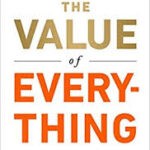
Invest in Justice
Welcome to the third of what will be five blog posts on Imperative 21 and its plans to reset the American and global economies.
From Design to Investment
The first imperative asks us to think at the most general level about the ways we set or design our social, economic, and political goals. The second imperative begins bringing us down to earth by pointing us toward specific actions to take in turning those often abstract goals into reality.
Before digging in to why investing for justice matters, I should acknowledge that it ]s hard to write about the Imperative or anything else without referring to the presidential election campaign. But if you look beyond President Trump’s illness or his boorish behavior and dog-whistle calls, you’ll see two leaders, neither of whom have seen the need for a dramatic redefinition of our economic priorities. Most of my readers would probably agree that former Vice President Biden comes closer to doing so. However, neither candidate comes close to endorsing goals like designing for the future or investing in

Whoever wins will have to dealing with a daunting set of policy problems. To see why that’s the case, just take one example that will also suggests the key point I’ll be making in this post, which the economist Mariana Mazzucato makes in beginning her recent book, The Value of Everything, which I’ve reviewed elsewhere.justice. In short, my point is not to endorse either candidate, but to suggest that we will feel the effects of not meeting the second imperative almost immediately whereas some of our failures to design for the future may not became clear for years to come.
Between 1975 and 2017, productivity grew by about 60 per cent. Yet from 1979 onwards, real hourly wages for the great majority of American works have stagnated or even fallen.
The growing gap between the (relatively) rich and (relatively) poor has lots of causes. Among them are the policy decisions that have prioritized shareholder value and enhanced the power of the financial sector in ways that brought the founders of Imperative 21 together I the first place.
That’s just the tip of the clichéd iceberg. If the Imperative 21 team is right, redesigning or resetting the economy has to include investment decisions that take on these in equalities and a whole lot more in ways take us closer to what my often ballyhooed paradigm shift.
The Imperative 21 Series
This is the third of a five part series on Imperative 21 and its campaign to reset the economy. You can go to the first two by clicking on the toggle switches below. I will activate the other toggles when I write those posts over the next two weeks.
Stakeholder Accountability
Making It Happen
The Political Economy of Investment Decisions
To see why I reached that conclusion, I had to take a step back and put my own career in a different perspective
I’m not an economist, but I have spent the bulk of the political science half of my career teaching and writing about the causes of economic policy making which I have been doing since I started teaching. In grad school, I had focused on what would today would be called political psychology. Then, when I started teaching at Colby College in 1975, I discovered that a lot of my students were double majors in political science and economics, so I started offering courses on the role of the state in a capitalist economy.
I had a lot of fun and learned a lot because most of my students didn’t agree with me. I had done my PhD thesis and first book on the new left in France which focused on a political party that advocated self-managed and decentralized versions of socialism. Many of my students, on the other hand, strongly supported free market capitalism and had doubts about the kinds of social service programs and industrial policies I covered in my courses.
They got me to read Friedrich Hayek, Milton Friedman, and Ayn Rand and even the microeconomic theory textbooks my colleagues had assigned them. That included Friedman’s classic New York Times 1970 article claiming that businesses should only have one goal—maximizing profit in ways that became enshrined as shareholder value, the fiftieth anniversary of which served as the launch date for Imperative 21’s reset campaign.
Then and now, Friedman’s conclusions about shareholder value did not make much sense to me. I appreciated the power of his analytical models and shared some of his goals, most notably, his fixation on individual freedom. However, I could not ignore the evidence about the then slow rate of economic growth
, the lack of universal health care and other social service programs, the looming environmental crisis, and the uneven distributions of wealth, income, and power in industrialized democracies I covered in my classes. My students were quick to point out that I didn’t have realistic alternatives to offer. The versions of socialism I had written about were becoming a pipe dream—at best—given Cold War realities.
It was only when I started working the Beyond War movement that I began thinking about the kind of redefined capitalism that Imperative 21 and others talk about today. Most of Beyond War’s leaders were early Silicon Valley entrepreneurs who paid their employees well and, more generally, ran their companies more openly and democratically than I ever dreamed possible before I met them. As we talked about their versions of capitalism and my vision of self-managed socialism, we found ourselves agreeing on almost everything because we anchored our economic analyses in systems theory which focused on the long term good of the entire system.
Once we all made that connection, everything changed. I could see that investment—and any other—decisions could begin pointing the system in new and better directions. Revisiting the interplay between politics and economics in the context of the 2020s rather than the 1980s and viewing them from a peacebuilder’s lens has led me to see how investing for social justice can literally make a world of difference.
What Shareholder Capitalism Misses
In the years since I started dabbling in political economics, we have made some progress on a number of issues despite our failure to question the centrality of shareholder value, including gender, race, and the environment. On balance, however, the fact that our ever more important financial systems still focus disproportionately on short term profit and loss statementts, we end up giving short shift to everything else, including social justice.
If we’ve learned anything this year (and should have learned years ago), we can’t afford to do that any more. Yes, investors still have to have the opportunity to make a return on their investments. But, we also have to reach the other goals that are being honored in the breach in shareholder capitalism. We can’t do so unless we overcome two blind spots shareholder models of capitalism inevitably lead to.
First, shareholder capitalism focuses on the short term (e.g., quarterly profit and loss statements) rather than anything that smacks of designing for the future. Second and even more importantly, it keeps us from seeing the role of other stakeholders, including everything from fully compensating for the contributions that a company’s employees make to the impact the government can have by offering tax incentives, providing direct investments funds, and creating the business environment in which it works.
It’s not just Imperative 21. On the day I finished this, Pope Francis issued his third encyclical, Fratelli Tutti, which castigated unbridled free market capitalism and called for a new commitment to social justice. As he put it in paragraph 30,
In today’s world, the sense of belonging to a single human family is fading, and the dream of working together for justice and peace seems an outdated utopia. What reigns instead is a cool, comfortable and globalized indifference, born of deep disillusionment concealed behind a deceptive illusion: thinking that we are all-powerful, while failing to realize that we are all in the same boat. This illusion, unmindful of the great fraternal values, leads to a sort of cynicism. For that is the temptation we face if we go down the road of disenchantment and disappointment… Isolation and withdrawal into one’s own interests are never the way to restore hope and bring about renewal. Rather, it is closeness; it is the culture of encounter. Isolation, no; closeness, yes. Culture clash, no; culture of encounter, yes.
Whether we are inspired by the business logic of Imperative 21 or the ethics of Pope Francis, if we want to design for the future, we have to put our money and other resources where our mouth is and invest in other outcomes, including those that deliver social justice as well as profit.
Investing for Justice
So far, I’ve focused on what could at best be called misplaced priorities. I’m drawn to organizations like Imperative 21 because it has access to individuals and organizations that can begin the long process of changing those very same priorities.
Indeed, the organizations that formed the initial coalition have all demonstrated that a company can still make money while seeking socially beneficial goals. Some have even shown that firms can do even better over the long haul if they emphasize goals other than maximizing shareholder value.
In other words, what follows is not just pie in the sky idealism. If we make conscious decisions to make what Mazzucato calls collective innovations, we can succeed. In fact, we make them all the time. I’m old enough to remember President Kennedy’s commitment to sending a “man” (no one thought about women as astronauts in those days) to the moon. As Massucato points out, the Internet, Siri, and more were born not out of the profit motive but through government funded research, often for defense.
They have never quite put it this way, but I suspect that Imperative 21’s leaders believe that if corporate leaders like themselves chose to make social justice a key goal, their ingenuity would lead them to find a way to make money, too. We were beginning to see signs of this on climate change related issues before the pandemic hit. Thus, companies like Amazon had already committed themselves to becoming carbon-neutral within the next fifteen years. Even energy companies have (perhaps quietly) begun investing for a future in which we do not depend on fossil fuels.
 The pandemic, the recession, the racial crisis, and the tumult surrounding the 2020 election have led Imperative 21 and others (including me) to give social justice a higher priority than they (or I) did as recently as a year ago. In this specific case, it was intriguing to watch how Imperative 21’s analyses and goals on the social justice side of the coin changed as they developed their strategy.
The pandemic, the recession, the racial crisis, and the tumult surrounding the 2020 election have led Imperative 21 and others (including me) to give social justice a higher priority than they (or I) did as recently as a year ago. In this specific case, it was intriguing to watch how Imperative 21’s analyses and goals on the social justice side of the coin changed as they developed their strategy.
As with the first imperative, there is little new to the three subthemes here. Instead, the Imperative 21 team wants us to make each of them a more serious and explicit commitment made by companies that are even bigger and more successful than their own. In laying them out, I’ll actually add a fourth that was lurking just below the surface in their discussions—at least when I was sitting in.
In the aftermath of the killing of George Floyd and the protests that followed, race is the most important form of inequality that the United States needs to address. However, as the Imperative 21 team thought through this second imperative, they realized that the lack of social justice takes many forms, all of which the business community can address—and has to address.
Address inequality. Like many of us this year, Imperative 21 uses the marginalized to describe people who have been left behind by recent economic progress and most seriously affected by the pandemic and racism. The late CK Prahalad showed that there was what he called a “fortune” to be made at the “bottom of the pyramid” most notably in his native India. When companies like Unilever began to target underserved markets, they found ways of building new markets. We are already beginning to see signs that some companies are trying to address underserved communities by, for instance, locating new supermarkets in underserved urban “food deserts” or by steering investment capital into enterprises in rural America.
Inclusion. It’s not just making goods and services available. Voices of the poor and other marginalized groups—especially people of color in the United States—have to be heard at the highest level. Affirmative action and related projects have been criticized as “reverse discrimination” since they were first adopted half a century ago. Now, however, the evidence is clear that more diverse teams make for more successful companies at all levels—especially at the top. More recent DEI efforts are beginning to show that going beyond tokenism and making organizations reflect the diverse realities of American society makes them more profitable because diverse teams—however you define diverse—tend to do better over time.
Use technology appropriately. When I first joined the team at Build Peace six years ago, we all were optimistic about the role technology could play in creating a more just and egalitarian society. We’ve since learned that neither the technologies nor the algorithms and other products they create can be value neutral. We are just beginning to explore what it will mean to make startup culture and venture capitalism sensitive to the needs of the poor and otherwise marginalized. Here, I find the work the work of Arlan Hamilton and Backstage Capital particularly heartening. To be sure, Hamilton is one of the observers who criticize venture capitalists for their failure to invest in companies that serve marginalized communities. But, unlike most of the other critics, Hamilton—despite not having any experience and not even having a college degree—founded Backstage Capital which has already invested millions of dollars in startups led by women, people of color, and the LGTBQ community, all of which she personally is a part of.
Beyond virtue signaling. Skeptics are quick to point out that corporate executives and other leaders are often guilty of making what amount to merely symbolic gestures which now go by the name of virtue signaling or performative efforts. Put simply, they put on a “good face,” but nothing of substance really changes. There is always a possibility that the enthusiasm Imperative 21 and others want to build on will dissipate and we will be left with nothing but empty gestures which, in time, only leave the disempowered and underprivileged angrier and more alienated.
What’s Next
I wrote this post in the days after the first presidential debate and President’s Trump’s hospitalization. Needeless to say, those were uncertain days, and my son in law (we are spending a lot of time at their house helping our grandkids navigate distance elementary school) voiced some skepticism about the optimistic tone I was taking. As he put it, “why do you think we’ll succeed this time when we’ve blown it so many times before?” On one level, I had to admit that he is right. Electoral and other hopes have all too often disappeared. But then I reminded him of how much the World Bank (his employer) had changed for the better in the 2010s. Big and powerful organizations do change, though it rarely happens quickly or easily.
If we don’t want to “blow it” again in his terms, we will also have to the third imperative seriously, too, because it gets at democracy as well as the economy, does so with even more immediacy, and takes us beyond symbolic gestures It will take even more to change the cultural norms that prevent us from having a government that is truly accountable to all.
That’s where I’ll pick up this thread next week.
The views and opinions expressed in this article are those of the author and do not necessarily reflect the official policy or position of the Alliance for Peacebuilding or its members.
Also published on Medium.

